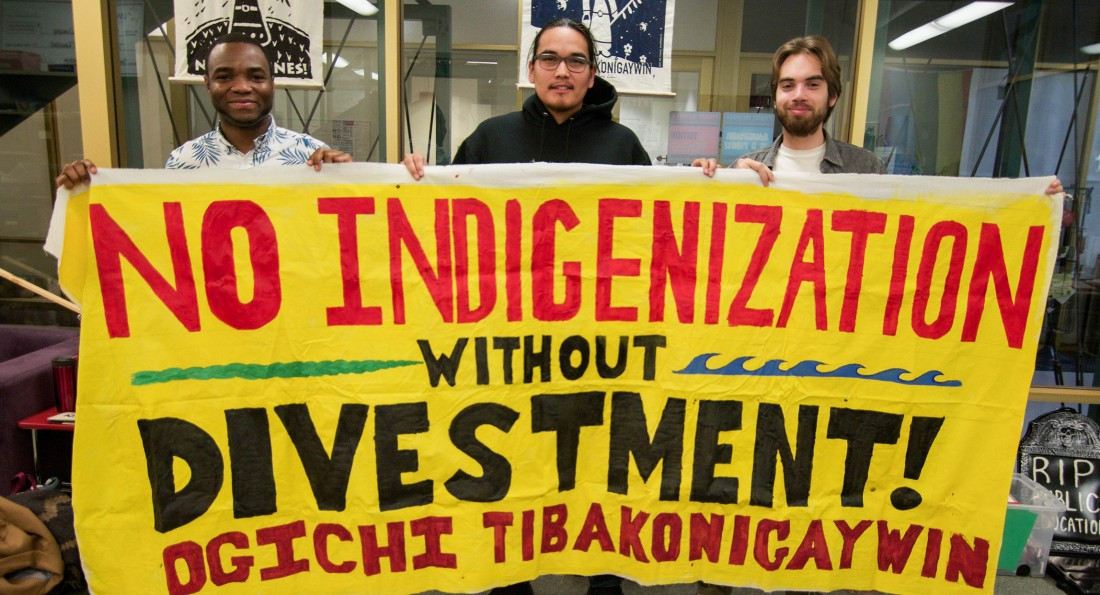U of W board says no to divestment
Despite student efforts, admin says decision has been made
While a student group at the University of Winnipeg (U of W) continues to rally for divestment from fossil fuels, the school administration and board have closed the door on the possibility of pulling its funding out of oil and gas companies.
For the last couple of years, Divest UWinnipeg has attempted to convince the school board to remove what is now a $2.5-million investment into these companies, a relatively small percentage of total investments at five per cent of the total portfolio.
“We spent two years trying to appeal to the good graces of the rationality of the administration to see if we could just convince them by sitting them down,” Andrew Vineberg of Divest UWinnipeg says. “They totally dismissed the whole issue, so now we’re trying to insert it back onto their radar … when they’re not responding with their own volition, you have to go a step further.”
Since classes began in September, Divest has done a banner drop at fall convocation, and members of the group attempted to engage Dr. Annette Trimbee, school president and vice-chancellor, in a discussion about divestment at the university address.
This past week, they organized an incentivized phone jam, in which they provided students with scripts and Trimbee’s and U of W Foundation CEO Brian Daly’s phone numbers in exchange for Index coffee gift cards.
Vineberg says it’s “more disruptive” than a letter-writing campaign.
“If you disagree with fossil fuel production, $2.5 million, that’s not forgivable, that’s not $10,” Vineberg says.
On Nov. 21, the group is planning to stand outside a board of regents meeting in a show of solidarity. Will these demonstrations encourage the administration and board to reconsider?
“No,” Chris Minaker, senior executive officer and advisor to the president, says. “The board has taken their decision and that stands, and we’re working with the board to support that decision.”
According to Minaker, the U of W foundation and pension are “looking to do something more than divestment,” by referring to a policy that looks at a company’s environmental, social and good governance standing as a whole. According to this policy, gas and oil companies fall within those parameters.
Vineberg says the university’s decision not to invest in greener and more sustainable companies has more to do with the donations the university receives as a result of keeping relationships with oil and gas companies intact.
“The Richardson College for the Environment is named after the … Richardson Foundation,” Vineberg says. “The charitable wing of the company owns Tundra Oil, which is the biggest oil company in Manitoba. That’s one of the most glaring examples.
“The oil giants of 2016 are very aware that their industry has been scientifically condemned, and they are doing everything they can to be, somehow, on both sides, on the right side of history.”
Minaker says despite the board’s decision, the administration is open to hearing from students.
“We want to make sure we’re talking to a full range of students and not just students making a loud point of view,” he says. “We value what our students have to say, we understand that our students have a very deeply held conviction, and that is what university is all about.”
Published in Volume 71, Number 11 of The Uniter (November 17, 2016)







